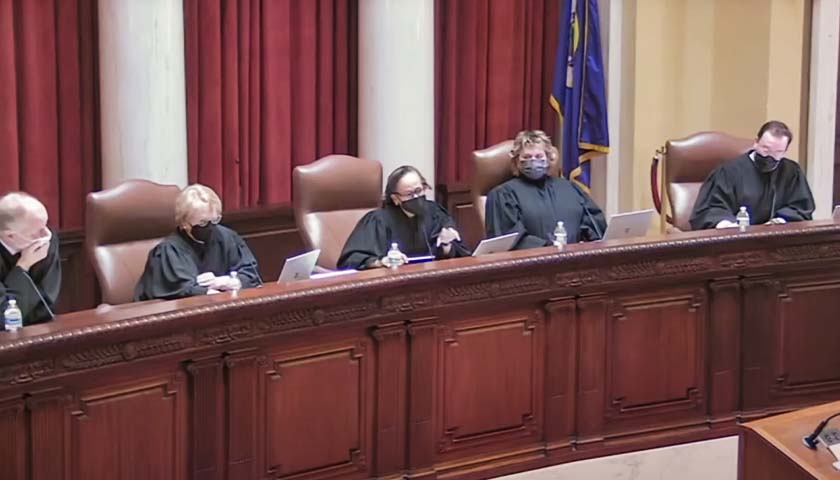by Evan Stambaugh
The Minnesota Supreme Court heard oral arguments Tuesday in an important case that could change how cities and counties conduct future statewide elections.
The case, Minnesota Voters Alliance (MVA) v. Ramsey and Olmsted Counties, seeks to ensure that counties are following state law vis-à-vis absentee ballot boards and the appointment of election judges.
MVA and the Republican Party of Minnesota, a co-plaintiff in the case, allege that the City of Minneapolis, Ramsey County, and other Democratic strongholds violated state law by appointing “hand-picked staff and government union members” to these ballot boards. Ostensibly none of their election judges were Republicans.
The nonprofit also alleges that “hundreds” of governing bodies — including cities, counties, and school districts — are willfully ignoring the law, not just the defendants in the case.
According to the law, “no more than half of the election judges in a precinct may be members of the same major political party unless the election board consists of an odd number of election judges, in which case the number of election judges who are members of the same major political party may be one more than half the number of election judges in that precinct.”
Another part of the law reads, “Election judges performing the duties in this section must be of different major political parties.”
In a statement released Tuesday, Minnesota GOP Deputy Chair Donna Bergstrom called the case an important step for “election protection.”
“State law clearly provides for our major political parties — both Republicans and Democrats — to help recruit and staff election judges for polling places and absentee ballot boards,” she said. “The local governments in this case chose not to follow these provisions in our state law, and we are asking the court to put a stop to that.”
The Minnesota Court of Appeals previously ruled against MVA and the Minnesota GOP, but the case has now reached the Minnesota Supreme Court following an appeal by the plaintiffs.
“The Court of Appeals position is, fundamentally, that unless the legislature firmly spells out a party balance rule that requires cities to have both Republicans and Democrats on absentee boards, the court will always side with the localities,” reads Alpha News’ report on the ruling.
Listen to the oral arguments below:
– – –
Evan Stambaugh is a contributor to Alpha News. He is freelance writer who had previously been a sports blogger. He has a BA in theology and an MA in philosophy. In 2016 he was a volunteer, intern, and field assistant for Donald Trump’s successful presidential campaign.
Photo “Minnesota Supreme Court” by Alpha News.








